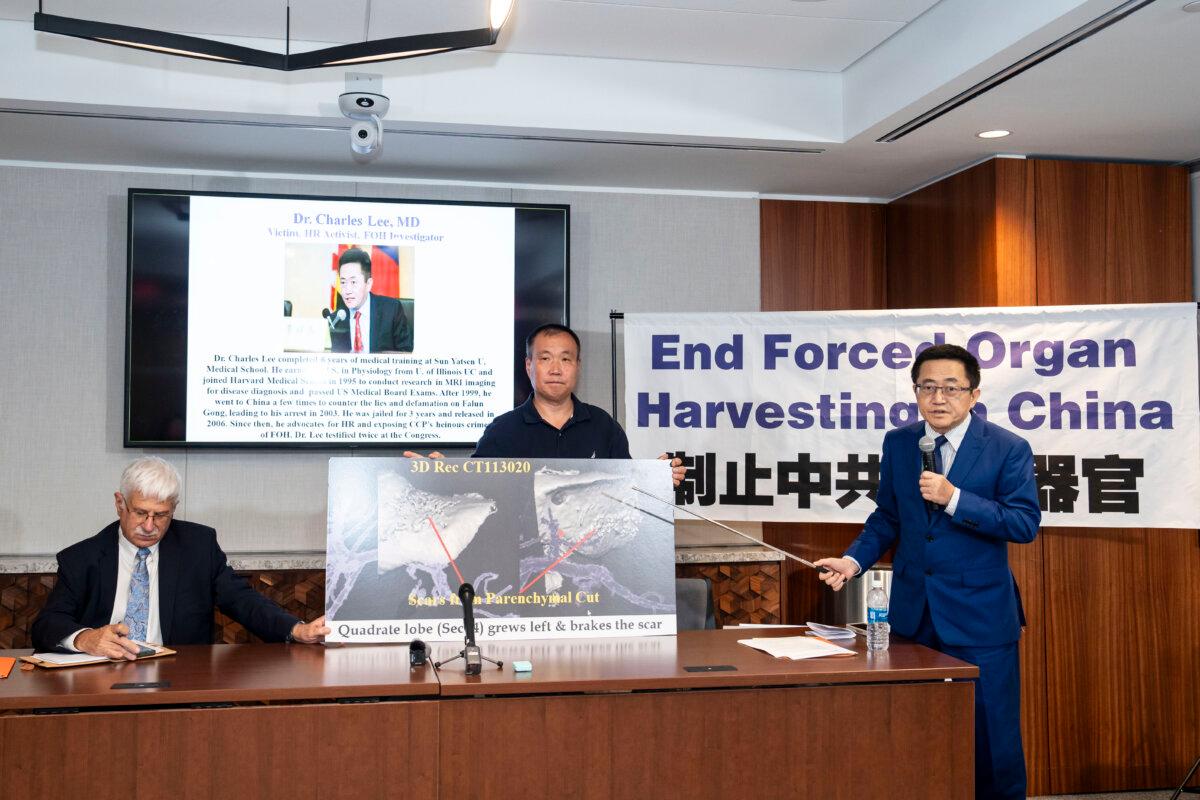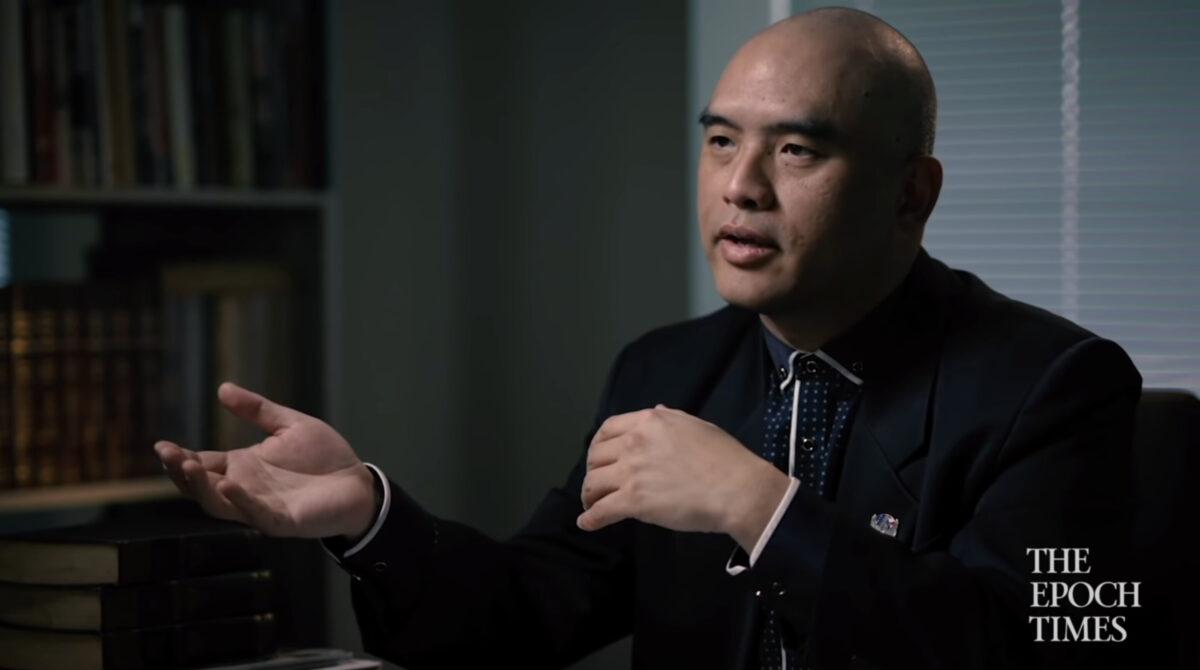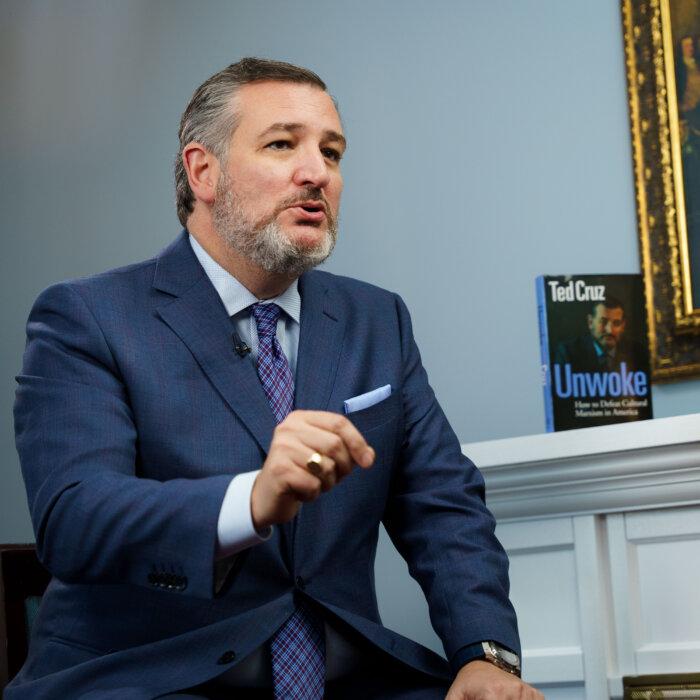The United States and China are locked in a war, experts are saying. It’s not a war of bullets, but rather an “unrestricted war” in almost every other strategic domain, including the economy, cyberspace, culture, and information. The information war determines what people know, which then sets what they think, which determines their actions in all other areas of the conflict.
The Chinese Communist Party (CCP) wages its information war on many levels, from seeding grand overarching narratives to tarring individual critics.
In some areas, however, the regime can construct no narrative. Some of its actions are so gruesome that the only option is to suppress the information, experts say. It’s exactly these areas where the United States could mount severe, potentially fatal pressure on the regime—if it is willing, several China experts told The Epoch Times.
“The darkest crime they’re doing right now is organ harvesting,” said Sean Lin, former U.S. Army microbiologist and Epoch Times contributor. He is also a member of the Committee on the Present Danger: China, an independent group.
“Maybe there are even darker crimes, more vicious, darker than organ harvesting. We don’t know. And so the CCP is very afraid of this being further exposed, further recognized by the international community.”
Still, to this day, no government has published the results of a formal investigation into the issue.
“Western governments did not take all this information seriously. They were still wishfully thinking that if we bring economic freedom to China, then eventually China will change its political system,” said Nan Su, a China commentator and senior editor with the Chinese-language edition of The Epoch Times.
Three factors have changed that situation, he said. The COVID-19 pandemic showed China as irresponsible and malicious, as it blocked critical information that would have aided other countries in facing the disease. The undercutting of Hong Kong’s independence in 2022 showed that China wouldn’t honor its promise to preserve the island’s separate political and legal system for 50 years. And finally, the CCP’s support for Russia in the Russia–Ukraine war means China is siding with adversaries of the United States and Europe.
“If the U.S. government was to really take this issue seriously, invest time and money into the investigation, that’s something Beijing’s leaders have always been afraid of happening,” he said.
The issue is, in fact, a “key point” in the international confrontation with China, as it would allow the West to hold the CCP’s feet to the fire, according to Heng He, an expert on Chinese politics and Epoch Times contributor.

For issues such as unfair trade practices and military expansion, the CCP can just ignore the criticism. Even if the CCP were to invade Taiwan or start a war with the Philippines, “somebody can still defend China, find excuses for China,” he said.
“But for organ harvesting, nobody can,” he said.
Rarely is there a matter so clear-cut as to allow one side to assume the unequivocal moral high ground, the experts suggested.
“The issue is whether the U.S. government has a strong will to do it, to expose it, to take action,” Lin said.
“The CCP now realizes that they are at a critical junction ... because the current Trump administration has one of the strongest teams, you can say the most hawkish team, against the CCP.”
Lin said that the Chinese regime is well aware of the historical precedent of the Holocaust.
Shoot the Messenger
Unable to explain the organ harvesting issue away, the CCP is trying to suppress the information by discrediting its victims, the experts said.“They want to take down Falun Gong’s reputation in the United States so the U.S. government would hesitate to collaborate with the Falun Gong group to expose CCP crimes,” Lin said.
The CCP sees this issue as particularly urgent because it strikes at its constant source of insecurity—a lack of legitimacy, Heng said.

In the past, Chinese dynasties drew legitimacy from a divine mandate. In modern times, legitimacy usually stems from elections, according to Heng. However, the CCP rejects both. With its revolutionary promises depleted after Mao Zedong’s catastrophic Cultural Revolution in the 1960s and ’70s, the Party now uses economic growth as a source of pseudo-legitimacy.
With the Chinese economy teetering from a massive real estate crash, insolvency in its off-the-books local government financing vehicles, a lack of foreign investment, and the trade war with the United States, the CCP is already facing significant challenges. Thorough exposure of its crimes could very well push the regime over the edge, Lin suggested.
“Even though the Chinese economy has a hard landing and crashes, as long as the CCP leadership is there, they may try to survive this harsh time. And the critical issue is that they still need to be somewhat legitimate to the world, to the Chinese people,” Lin said.
“If their crime against innocent Falun Gong practitioners inside China is fully exposed, nobody can accept such a government, and the CCP may even be disintegrated from inside.”







